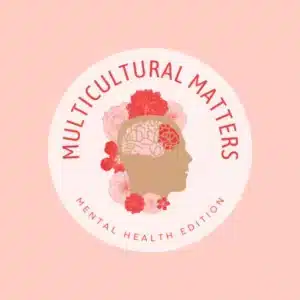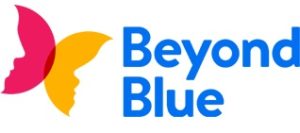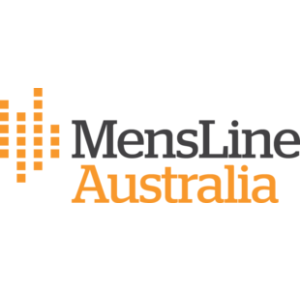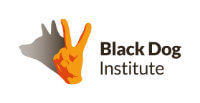In May, we celebrate World Day for Cultural Diversity for Dialogue and Development. This global observance celebrates not only the richness of the world’s cultures, but also the essential role of intercultural dialogue for achieving peace and sustainable development. Culture speaks to who we are as communities, but also as individuals and as such plays a significant role in supporting health and wellbeing.
How culture affects mental health
Culture impacts every facet of mental health, shaping definitions of wellness, expressions of symptoms, and coping strategies. Cultural beliefs determine help-seeking behaviours, the type of assistance sought, and expectations of mental health services. For example, stigma in some cultures can prevent individuals from seeking help, while in others, community and familial support are integral to the recovery process. Additionally, people from culturally and linguistically diverse backgrounds may face additional challenges like racial discrimination and language barriers adding stress and complicating access to mental health services.
The Importance of Cultural Competence in Mental Health Care
When working with culturally and linguistically diverse clients, cultural competence is essential for effective mental health care. It involves understanding and integrating clients’ cultural values, beliefs, and practices into their care. Health professionals should be trained in cultural competence to improve empathy, communication, and treatment outcomes. This approach builds trust with clients, utilises culturally relevant assessment tools, and involves community leaders and interpreters as necessary.
The Role of Digital Mental Health in Bridging Cultural Gaps
Digital mental health resources can significantly bridge cultural gaps in mental health services. Some clients will prefer to talk to someone who speaks their language, is the same age or gender, or is from the same cultural group. There are a growing number of services which offer multilingual access or culturally sensitive to aid health professionals in supporting their culturally and linguistically diverse clients.
Resources to develop your own cultural competence:

Multicultural Matters – Mental Health Edition Podcast
Podcasts – CMS FM 91.1 (cmsradio.org.au)
A new podcast supported by the ACT Office for Mental Health and Wellbeing which delves into the intersections of culture and mental health. Each episode explores the intersections of culture and mental health, featuring insightful interviews with mental health advocates and practitioners, as well as medical professionals.
Services fr use with culturally and linguistically diverse clients:
Psychological Treatment

iCanQuit
Tools and information to support people to quit smoking and stay smoke-free. The website contains information, tips and tools, as well as an interactive Quit Plan to set goals and track their progress. The information on their website is provided in Simplified Chinese, Traditional Chinese, Vietnamese and Arabic, to support non-English speaking individuals through their quit smoking journey.
Symptom Management and Wellbeing Tools

This Way Up Multilingual Resources
https://thiswayup.org.au/resilience-tools/multilingual-resources/
This Way Up offers self-guided or own clinician supported mental health treatment programs for adults for various mental health concerns and a mixed anxiety depression program for teens. They also offer Coping Tools and Worksheets in common languages other than English (Arabic, Simplified Chinese, Traditional Chinese, Filipino, Greek, Hindi, Italian, Korean, Spanish and Vietnamese).

Smiling Mind
https://www.smilingmind.com.au/
A website and app teaching mindfulness meditation to young people to improve mental wellbeing. It includes programs and courses in languages other than English including Pitjantjatjara and Ngaanyatjarra, Arabic, Dari and Kriol.
Counselling and Information

Beyond Blue
https://www.beyondblue.org.au/
A website offering information on mental health, 24/7 phone and chat counselling and peer support forums. Forums cover several topics including anxiety, depression, PTSD, Suicidal thoughts, and more as well as dedicated forums for young people and LGBTIQA+ people. The Beyond Blue phone counselling includes translation and interpretation services for over 46 languages.

Kids Helpline
Free 24/7 online and phone counselling for young people aged 5 to 25 years. Qualified counsellors provide confidential crisis support, practical help, and emotional support for young people. Callers can access a translation service and ask them to call Kids Helpline. The website also provides a range of information sheets and articles to assist and empower young people, which can be translated into Chinese, Arabic, Vietnamese, Italian and Greek.

Lifeline
Free 24/7 phone, text, and online suicide prevention service providing counselling for people experiencing personal crisis and emotional distress. The counselling service and website provide information, advice, and support to individuals with thoughts of suicide or worried about someone else. Lifeline crisis support can be contacted over the phone, via online chat, or text, with translation services available.
Counselling for family and relationships

1800RESPECT
https://www.1800respect.org.au/
A 24/7 counselling service for any person in Australia who has experienced, or is at risk of, domestic, family, or sexual violence. There are options to call, SMS, chat online or video call through the website, which also provides information, safety planning tools and links to other support services. The information on their website is available in 29 languages and there are interpreters available for their chat and phone services.

Mensline
A free telephone, video chat, or online chat counselling service offering support to men in Australia. MensLine Australia offers 24/7 support for men with concerns about mental health, anger management, family violence (using and experiencing), addiction, relationships, stress and wellbeing. Some of the information available on the Mensline website can be accessed in 15 languages.
To explore more digital mental health services that might be suitable for your clients check out our factsheets.





